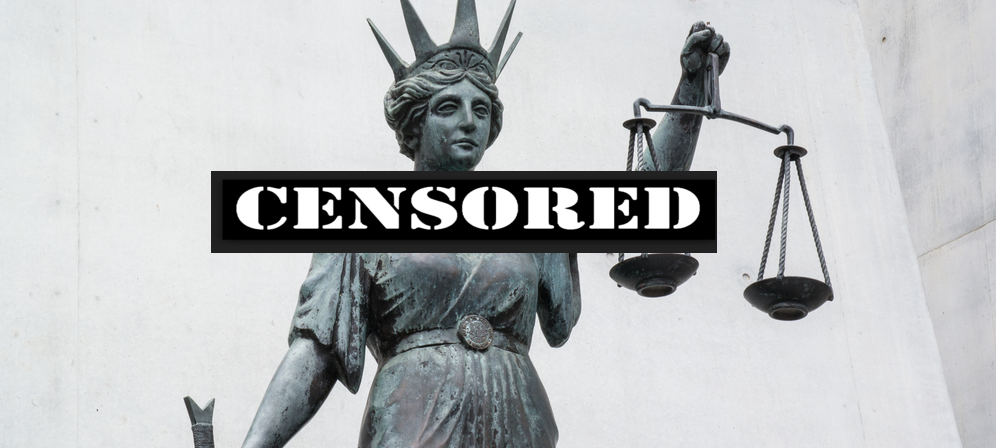In the last couple of weeks, I’ve tried to make sense of the sordid Kathleen Kane mess: The porn, the leaks, the judge making outlandish charges of clandestine break-ins. Unfortunately, what’s gotten lost in the hype surrounding the blood feud between Kane and her nemesis, former state prosecutor Frank Fina, is the pure outrage we should feel about the email chain that has come to light—the one over which countless judges and prosecutors have bonded while chuckling at the high-minded comedy of some jerk who calls himself “The Amazing Racist.”
What I haven’t been able to figure out is why that isn’t the story. Instead, especially from the Inquirer, we’ve gotten a narrative that paints the Attorney General as a kind of cross between Richard Nixon, complete with implications of masterminding break-ins, and the Glenn Close character in Fatal Attraction, a deranged woman, scorned.
A State Senate panel this week began hearings to consider whether Kane ought to be removed from office because the State Supreme Court has lifted her license to practice law. But, according to Duquesne University law professor Bruce Ledewitz, that move by the Court was an overreach. Do we really want to override the vote of 3.1 million Pennsylvanians based on a power grab by a Court that has already had two members implicated in the porn email scandal?
It feels like Kane and Porngate has become a runaway story, hurtling to a conclusion before all the facts are in. That, in part, is due to media coverage that obfuscates more than it enlightens.
In fact, a careful deconstruction of the Inquirer’s coverage raises serious questions about its reporting on this matter. Let’s take a deep dive into two stories the Inquirer published last Thursday that tellingly illustrates some of these problems.
But first, as background, keep in mind that, two weeks ago, Kane released an email chain showing that former Sandusky grand jury Judge Barry Feudale, whom Kane had had removed from grand jury service, sought to leak a sealed Supreme Court order to two Inquirer reporters, Craig McCoy and Angela Couloumbis. She released that email chain because, in a story by Chris Palmer, the Inquirer had curiously chosen to leave out the telling exchange in which Feudale offers to leak to the reporters the sealed writ of his ouster. “I need both of your assurance it will only be used as background and you will not reveal me as the source of such,” he tells McCoy and Couloumbis.

In that story, Palmer reports Feudale’s allegation that his emails had been obtained by the Attorney General either through a break-in of his office or hacking into his computer. But those charges were false. Rather, the emails between the judge and the reporters were able to be revealed because the judge himself forwarded them to Fina’s former—but never disabled—email address at the Attorney General’s office.
With that in mind, let’s decode last Thursday’s coverage. November 5 saw not one but two Kane stories. On page one, above the fold, the headline read: “Judge: Kane spared Fumo in Turnpike Commission case.” Any headline that can combine the names Kane and Fumo—arguably two of the bigger notches on the Inquirer’s investigative belt in the last decade—is destined for page one, above the fold.
In the story, reporters Angela Couloumbis and Craig McCoy reported Feudale’s accusation that Kane had shielded State Senator Vince Fumo from corruption charges in 2013 by changing the presentment—or charging papers—of the grand jury investigating Turnpike Commission corruption. The message was clear: Like a story from March 2014 by the same reporters that documented Kane’s decision not to prosecute lawmakers caught in a corruption sting, Kane was soft on corruption.
In the last paragraph of their story, the Inquirer reporters write: “Shortly after Feudale was removed, he said, someone broke into his office and took some documents,” they write. “Among them, he said, was the grand jury presentment with Fumo’s name on it.”
Let’s pause here to consider what’s going on. A week prior, in Palmer’s story, the paper credulously reported Feudale’s accusation of a break-in, which has since been debunked. Now here were the very same two reporters Feudale had been leaking to reporting another break-in accusation from him. Once Feudale had been proven false on the break-in front, shouldn’t that have led the reporters to treat his renewed break-in allegation with added skepticism? Perhaps, but remember, Feudale had also been their source, raising the question as to whether the Inquirer reporters’ loyalty to their source had influenced their judgment.
In fact, throughout their story, the Inquirer reporters seem all too willing to buy Feudale’s point of view, despite the absence of evidence. For example, they interview Laurel Brandstetter, the AG’s prosecutor on the turnpike corruption case, who Feudale says gave him the first presentment that included Fumo’s name. Brandstetter tells the reporters that Feudale had raised “significant and alarming allegations” but then they write: “…she added that she would not have ‘knowingly participated’ in any effort to manipulate criminal charges.”
I’ve lost faith in the state judicial system to adjudicate this matter—just find a member of the ol’ boys network Kane complains of who isn’t somehow potentially conflicted. And I’m fast losing confidence in the media storytelling.
If the charging documents had been tampered with by Kane, Brandstetter would have been in a position to know that–yet she wouldn’t corroborate the charge. Why is this a page one story? Beats me. But in my former life as the editor of a newspaper, I can attest to the near irresistible draw of a headline that combines names like Fumo and Kane with charges of wrongdoing.
On the same day that the Fumo/Kane story ran, McCoy and Couloumbis penned another story headlined “Judge: Kane has no evidence leaks made by another judge.” This story contains some egregious reporting.
Let’s look at the story’s disingenuous opening paragraphs.
“After Pennsylvania Attorney General Kathleen G. Kane said last week that the senior judge overseeing the grand jury investigation of Jerry Sandusky had recklessly leaked information, another judge told her to prove it.
Senior Judge John M. Cleland gave her a week to come up with evidence showing the alleged leak had impacted the Sandusky case.
On Wednesday, Kane said she didn’t have any.”
To the average reader, this story is of the “there she goes again” type: Reckless Kathleen Kane, desperate to stay out of jail and keep her job, will say anything to save her own skin, evidence be damned. But there’s a fact issue at the heart of the story’s very premise. Kane never said that she had evidence of leaks in the Sandusky case. The leak she talked about, and released evidence of, was the email from Feudale to the very writers of this story, copied to Fina, and it was about leaking the sealed Supreme Court order in 2013 that removed Feudale from grand jury service.
The story is constructed on a false impression: That Kane had accused Feudale of leaking Sandusky grand jury information. In the story, McCoy and Couloumbis seemingly double down on the false narrative: “When Sandusky’s appeals lawyer, Alexander Lindsay of Butler, Pa., first raised the issue of the of the alleged leaks in September, [Kane spokesman Chuck] Ardo provided conflicting statements in the office’s response,” they write. “At first, he said there was no evidence leaks came from anyone associated with the prosecutor’s office. Hours later, he said Kane ‘has strong suspicions that the leaks came from people associated with this office.’”
Uh, anyone notice the problem here? Those statements are decidedly not in conflict. In fact, they’re perfectly consistent. In other words: Kane has no evidence of Sandusky leaks, but suspects that such leaks took place, given that the Sandusky judge leaked to the same reporters of this very piece sealed Supreme Court information on another matter.
It’s passages like this one, read carefully, that lead a reader to feel like he or she is reading a prosecutorial brief rather than an intellectually open and honest attempt to sort out who did what to whom in this whole sordid story. I’m not defending Kathleen Kane, and nor am I anti-leak. Journalism and, in fact, Democracy are both built on the public release of information that powerful actors seek to keep from view. But for that system to work, a journalist has to be savvy in sizing up his or her sources, constantly inspecting who has axes to grind. In court cases, especially, prosecutors and defense lawyers play a sophisticated game with the press, sometimes seeking to use media reports to taint the jury pool. You never want to cross the line into co-conspiring with your sources. I don’t know if that’s what has happened in the Kane case, but the question needs to be raised. After all, something—it may just be reportorial sloppiness—is keeping the real outrage of those racist, sexist, and hateful emails from taking center stage in our public narrative.
I’ve lost faith in the state judicial system to adjudicate this matter—just find a member of the ol’ boys network Kane complains of who isn’t somehow potentially conflicted. And I’m fast losing confidence in the media storytelling.
Yet the story marches on with a momentum all its own, as a State Senate panel has seized on an obscure provision of the state Constitution that would allow the Senate to remove an elected official for “reasonable cause,” bypassing the House and a formal impeachment process. If that happens, under the guise of removing Kane for having her law license suspended, we will have had removed from office an elected official who has not yet been convicted of a crime.
Maybe that wouldn’t be so bad, except that most of Pennsylvania still doesn’t know what this story is really about. It’s pretty clear we need more honest brokers sorting it out. We need someone beyond the state judiciary and the regional fourth estate looking into all of this: Kane’s conduct, the porn emails, the leaks. Maybe that involves the federal justice department appointing a special prosecutor, or a committee of the United States Congress investigating whether justice in the state of Pennsylvania has been compromised. I’m convinced that a full and fair accounting of Kane and Porngate might very well result in a statewide judicial mushroom cloud. There might be no heroes left standing. But at least we’ll have transparently dealt with our mess.
UPDATE [9:23 am]: Reporter Bill Bender in the Daily News this morning has a bombshell that provides further evidence of the old boys’ network Kane maintains she’s up against. Turns out, the guy sitting in judgment of Supreme Court Justice Michael Eakin on porngate was his good friend. The Judicial Conduct Board’s chief counsel Robert Graci, who found that emails sent to Eakin were only “mildly pornographic,” actually helped Eakin get reelected in 2011.
Because of the merger of the two newsrooms, The Inquirer also ran Bender’s story today, in the local section, while a McCoy story on Kane being charged with a second count of perjury—a fait accompli—got front page treatment.
CORRECTION: An earlier version of this story reported that the presentment in question was no longer in Judge Feudale’s possession. In fact, the Inquirer story reported that Feudale had made a copy of it.





